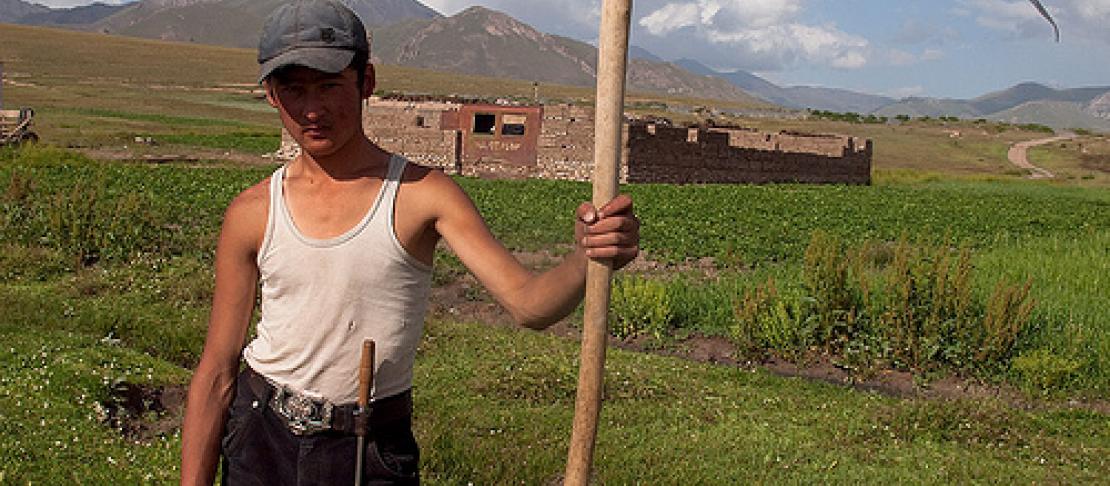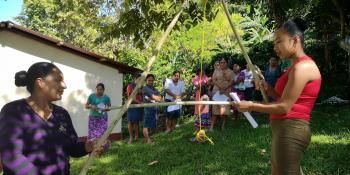In Central Asia climate change may make - or break - farmers' fortunes

by Vanessa Meadu
Agriculture is fundamental to many Central Asian countries' economies, but climate change brings uncertainties and potential threats to this important sector. Some studies have looked at how climate change may impact the national economies, but until recently, little has been known about how these climate threats play out where they potentially matter most: in a farmer's pocket.
According to Aden Aw-Hassan, a researcher at the International Center for Agricultural Research in the Dry Areas (ICARDA), the answer may be found through a bio-economic modelling approach that brings together downscaled climate change projections and price/yield data, with household surveys and crop experiment data.
The researchers are not interested in studying how climate change impacts individual crops but rather are looking at the whole farm system. By using this approach, Aw-Hassan explains, you better capture how farmers already make small adjustments to their practices, to better deal with fluctuations within growing seasons. This, he says, provides a more accurate estimate of the consequences on farmer income.
The researchers found that in the period from 2040 to 2070, some farmers, particularly those in the sub-humid zones of Kazakhstan, Tajikistan and Kyrgyzstan may actually benefit from a longer growing season which results from increasing temperatures and rainfall. Meanwhile, farmers in arid and semi-arid regions, including many parts of Uzbekistan, are expected to lose out as temperatures rise, and water becomes scarcer.
Read more about this research: In Central Asia, small wallets pay a big price for climate change impacts
View poster:
Book Chapter:
Christmann S and Aw-Hassan A. New topics and high time pressure: Climate change challenges agricultural research in Central Asia and the Caucasus. International Center for Agricultural Research in the Dry Areas (ICARDA), Aleppo, Syria.
Vanessa Meadu is Communications and Knowledge Manager at the CGIAR Research Program on Climate Change, Agriculture and Food Security (CCAFS). This research was presented at the Global Science Conference on Climate Smart Agriculture, which took place at the University of California, Davis from 20-22 March 2013. Read more reports from the conference on our blog and on twitter @cgiarclimate using #climatesmart.


